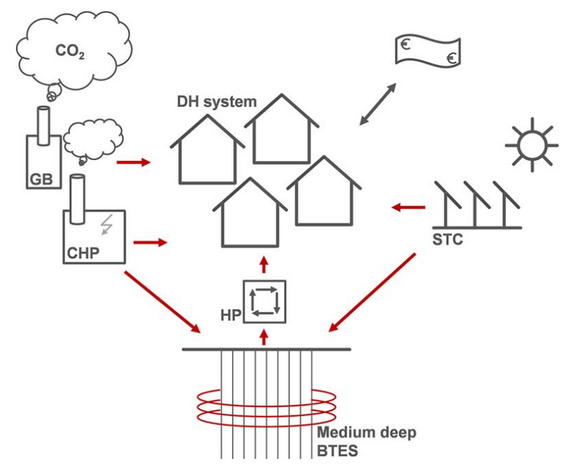
Environmental and economic assessment of borehole thermal energy storage in district heating systems
In this publication, we explore the integration of different energy technologies in district heating systems with a borehole thermal energy storage (BTES), aiming to assess their environmental impacts and economic feasibility. We conducted a comprehensive life cycle assessment (LCA) to evaluate greenhouse gas emissions and energy demand across various scenarios involving combined heat and power (CHP) and solar thermal collectors (STC).
Our analysis involved a factorial design approach that generated 9,241 different system configurations to identify Pareto efficient designs—those that optimize both cost and environmental performance. The focus of our research is primarily on the global warming potential (GWP) of these systems, though we also considered cumulative energy demand (CED) for a thorough assessment.
We highlight that urban areas are expected to host more than 80% of the European population by 2050, making efficient district heating systems critical for sustainable urban energy management. The findings of our study demonstrate that integrating medium-deep BTES systems into district heating setups can offer significant advantages under various economic and environmental conditions.
In conclusion, we underscore the importance of these technologies in providing efficient and sustainable heating solutions while mitigating greenhouse gas emissions in urban environments.